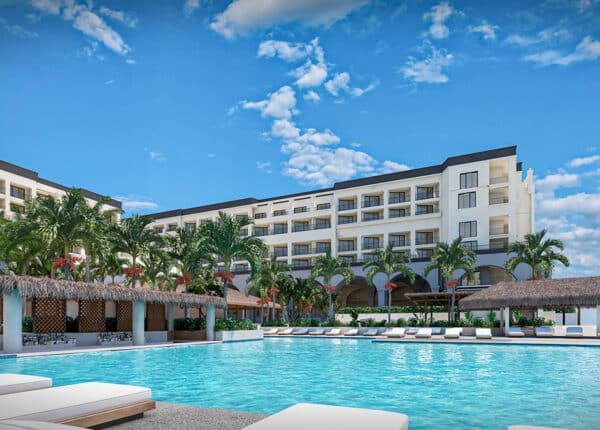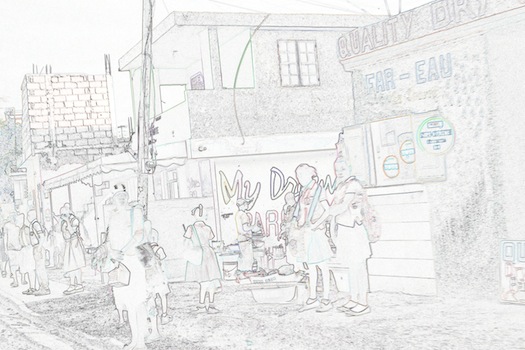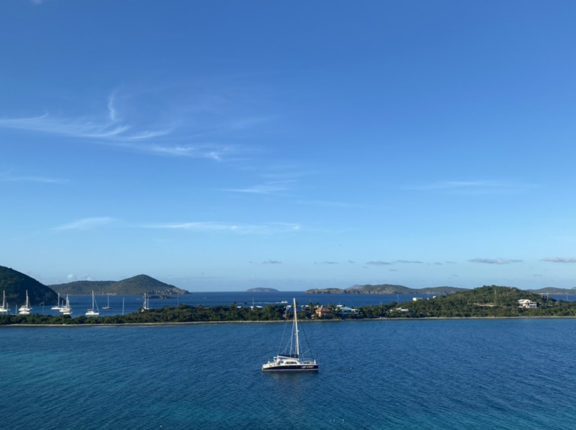By Guerda Nicolas
CJ Contributor
FOLLOWING THE AFTERMATH of the 2010 earthquake, some of the news headlines read “Haitians Resilient Despite Disasters” or “Haitians Resilient Amid Destruction.”
Haiti has experienced a longstanding history of significant issues with environmental calamites, poverty, political discord, and violence. Thus, it is plausible to assume that experiences of trauma occur frequently for many Haitians. A good Haitian friend of mine often says that Haiti and Haitians are either in “need of Jesus, therapy, or both.”
I think that his comment gets at the perception of Haitians appearing to be OK in the mist of the most horrendous and difficult situations.
However, it’s possible that Haitians’ ability to maintain normal functioning following a traumatic event is being misconstrued as resiliency. “Returning to life as usual” may be more indicative of their experience from longstanding trauma, than their ability to thrive as is understood in more Westernized countries (James, 2004; Nicolas, Schwartz, Pierre, & Donnelly, 2010).
Because Haitians appear to functionally adapt to traumatogenic factors, identification of Haitians suffering from PTSD symptoms may be challenging for clinicians who are unfamiliar with the cultural aspects of trauma in Haitians.
For example, following a traumatic event, a Haitian individual may appear to maintain normal functioning (e.g., caring for children, completing household chores, etc.), however, he/she may be experiencing PTSD symptoms that may be manifesting in the form of somatic symptoms and physiological complaints.
According to the dictionary, the term resiliency is defined as “the capability of a strained body to recover its size and shape after deformation caused especially by compressive stress” or “an ability to recover from or adjust easily to misfortune or change.”
In fact, within the field of mental health, the latter definition is most widely used when referring to individuals who have overcome some significant negative change or life event.
These definitions make several assumptions. First, they imply that the misfortune or change is a new experience for the individual. Such an assumption leads to the question of what must it mean for Black individuals who, due to experiences with slavery and colonization, have been enduring misfortunes for a lifetime? By definition, one could argue that all Black people are resilient and thus the idea of applying the term to certain ethnic groups (i.e., Haitians) and not to others is misguided.
Second, these definitions imply that the individuals have recovered from these misfortunes or changes. Although it is unclear what the word “recover” means or how it is manifested among different groups, the underlying assumption is that recovery has indeed taken place. Accepting the second assumption negates the first because, to the extent that Black people have not adjusted or recovered from their misfortunes or negative experiences with slavery and colonization, the label resiliency cannot be applicable to them.
Lastly, the definitions also use the word “ability,” which often means “natural aptitude” or “acquired proficiency”—all of which assumes that the individual must have access to some skills that can be used subsequent to the “misfortune” or “change.”
Although the term resilience, resilient, or resiliency, is commonly used within the field of mental health, an opportunity to unpack its origin, its meaning, and its applicability across different cultural groups is rare.
Now, don’t get me wrong, I am not saying that Haitians as a people do not display a level of strength under the most stressful situations. I merely want to caution the use of the label without a comprehensive understanding of its relevancy and applicability to Haitians in Haiti and in the diaspora.
Fostering resiliency (what we refer to in the Western part of the world) at the individual level for Haitians includes incorporating religious beliefs to overcome traumatic events. Religious beliefs are important aspects of Haitian life. Religious beliefs help Haitians see beyond tragedy and instill hope for improved circumstances (WHO/PAHO, 2010).
For Haitians, religious beliefs have underlying themes of positivity and promote positive emotions and feelings to help them to cope with challenging and difficult times. These factors have been found to promote resiliency at the individual level (Meredith et al., 2011) and should be considered when providing treatment for PTSD with Haitians. In addition, for some Haitians, the family unit plays a crucial role in providing emotional support during difficult times (Nicolas, DeSilva, 2010; Boyd-Franklin, 2003).
Thus, the family unit can serve to promote positive coping by buffering the negative effects associated with traumatic events. Familial level factors that have been found to promote resiliency include emotional ties, communication, support, closeness, nurturance, and adaptability (Meredith et al., 2011). Given the role of the family in the Haitian culture in providing emotional, financial, and spiritual support, targeting these familial level factors may lead to improved treatment outcomes.
This article highlights the need to enhance our understanding of culturally constructed experiences and responses to trauma that may be unique to particular cultural groups, in particular, Haitian populations.
It is clear that treatment that fails to integrate the cultural background of the client will not lead to positive behavior change by the client (Campbell & Alexander, 2002; Sue & Sue, 1999).
Thus, mental health treatment of Haitians must be informed by the cultural traditions and customs of the Haitian people, be integrated within the Haitian community of the client, and be link to traditional folk remedies that are central to the healing process of many ailments within the culture.
Dr Guerda Nicolas, a Caribbean Journal contributor, is the chair and associate professor in the University of Miami’s Department of Educational and Psychological Studies. This is the latest in a series of analyses on groups dealing with mental health work in Haiti.








